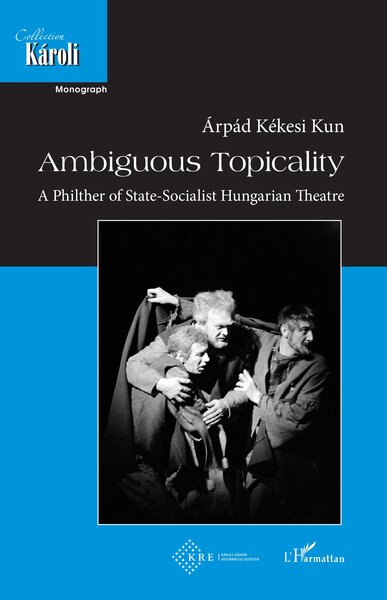Nous utilisons des cookies pour améliorer votre expérience. Pour nous conformer à la nouvelle directive sur la vie privée, nous devons demander votre consentement à l’utilisation de ces cookies. En savoir plus.
AMBIGUOUS TOPICALITY - A PHILTER OF STATE-SOCIALIST HUNGARIAN THEATRE
L'Harmattan - EAN : 9782343230313
Édition papier
EAN : 9782343230313
Paru le : 1 janv. 2021
19,00 €
18,01 €
Disponible
Pour connaître votre prix et commander, identifiez-vous
Notre engagement qualité
-
 Livraison gratuite
Livraison gratuite
en France sans minimum
de commande -
 Manquants maintenus
Manquants maintenus
en commande
automatiquement -
 Un interlocuteur
Un interlocuteur
unique pour toutes
vos commandes -
 Toutes les licences
Toutes les licences
numériques du marché
au tarif éditeur -
 Assistance téléphonique
Assistance téléphonique
personalisée sur le
numérique -
 Service client
Service client
Du Lundi au vendredi
de 9h à 18h
- EAN13 : 9782343230313
- Collection : HARMATTAN HONGR
- Editeur : L'Harmattan
- Date Parution : 1 janv. 2021
- Disponibilite : Disponible
- Barème de remise : NS
- Nombre de pages : 216
- Format : 1.20 x 15.50 x 24.00 cm
- Poids : 329gr
-
Résumé :
This monograph examines the Hungarian theatre between 1949 and
1989 and uses Philther as the method of writing theatre history. In line
with the Philther categories, the twelve performance analyses comprise
six units: the context of the performance in theatre culture; dramatic text
and dramaturgy; staging; acting; stage design and sound; the impact
and posterity. They focus on the beginning, middle and end of state
socialism through the productions of three different theatres. The first four
chapters examine shows of the Operetta Theatre in Budapest immediately
following the nationalization of cultural institutions. The next six chapters
deal with performances of the National Theatre during the consolidation
of the Kádár regime, and the last two chapters present productions of the
Katona József Theatre shortly before the regime change. They all address
the question of topicality, the adaptation of stories to contemporary
expectations, which often involved the emergence of ambiguity and the
involuntary shift of interpreting stage events in the light of the spectactors own situation.












